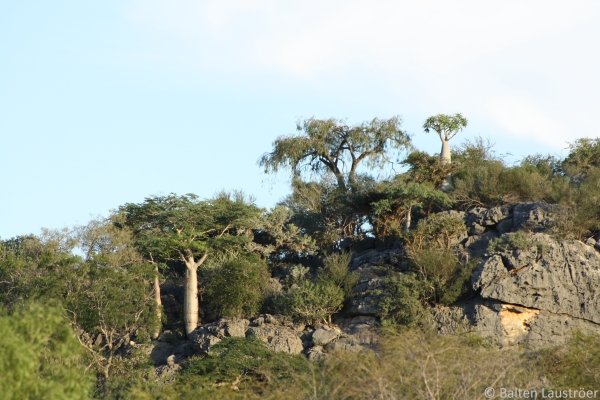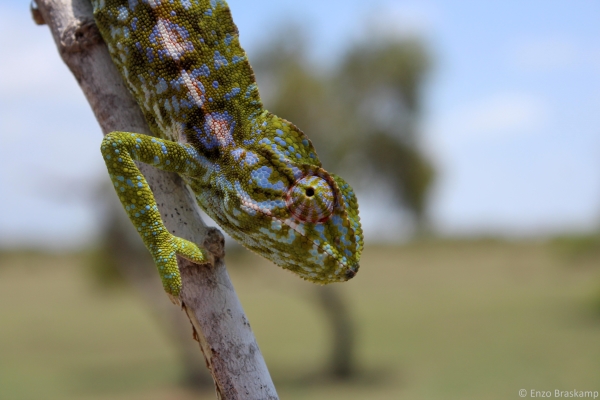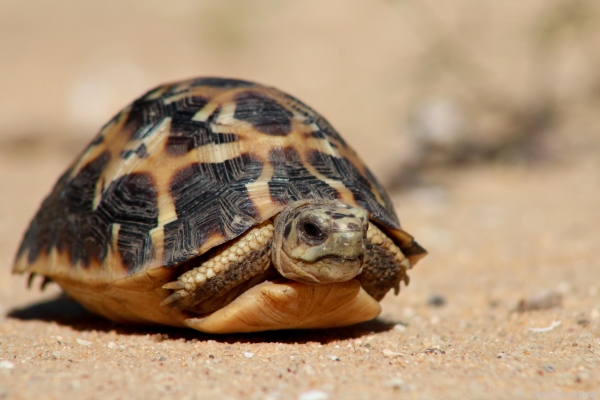
Natural Ecosystems & Functions – Work Package 4

The Mahafaly Plateau is one of the most arid and economical poorest regions of Madagascar and the majority of malagasy people depend on natural ressources. Therefore, the preservation of ecosystems is directly associated with the livelihood and well-being of the local residents.
Unsustainable land use techniques have lead to the destruction of flora and fauna of this unique ecosystem. Due to past and ongoing destruction of its natural ecosystems the Mahafaly region can be considered a front running model for conflicts and trade-offs between ecosystem services and functions and different forms of land use, aggravated by socio-economic and cultural peculiarities and climate change.

It is therefore a challenge to investigate how different land use types need to be structured to serve as suitable habitats for key indicator species with either high conservation value or essential ESS/F and to identify land management strategies for sustaining these essential services for the livelihood of the local communities.WP 4 will provide quantitative measures for the utilization of forest resources, their potential for carbon sequestration and valorisation of forest resources.

In collaboration with local and international stakeholders it will develop opportunities for additional income through yet unexploited tourist attractions (flagship species) and marketing of forest resources in a sustainable way.
In addition, WP 4 will provide a user-friendly tool to assess indicators for ESS/F which consist of flagship species for tourists as well as indicators for biotic diversity and thus will be applicable locally after the project has been completed.
In WP 4 the following key questions will be addressed:
- How is multiple use forestry (wood and non-wood goods and services, NWGS), carbon sequestration, and forest regeneration and restoration influenced by forest related land use types (e.g. national park, community forest, degraded forest) and how can sustainable forest management be promoted?
- Are new forms of agriculture (extension of irrigation, permanent cultures) and livestock management (corralling) compromised by increased crop and stock damage and trans-specific parasite infections, e.g. through black rats?
- How do the species, identified by the 'action plan' of Madagascar National Park as key and flagship species for biodiversity conservation and tourist attraction respond to different forms of land use (irrigation for agriculture, livestock) and improved access (tourism, traffic, opportunities for illegal harvest)?
- Which species could be used as indicators for water quality and the diversity of terrestrial and aquatic ecosystems?
Current thesis:
- Influence of land use on reptile communities in southwest Madagascar, PhD thesis: Joachim Nopper (University of Hamburg)
- Influence of different types of land use and of overexploitation on the population dynamics of the radiated tortoise (Astrochelys radiata), PhD thesis: William Ronto (University of Antananarivo)
- Transhumance and spatiotemporal dynamic of Tsimanampetsotsa vegetation, southwest Madagascar, PhD thesis: Amadou Ranirison (University of Antananarivo)
- Relationship between habitat structures and the occurrence of fossorial reptiles, M.Sc. thesis: Andriatsitohaina Ranaivojaona (University of Antananarivo)
- Effects of land use systems on the occurrence of fossorial reptiles, M.Sc. thesis: Franck Hermé Mananjara (University of Toliara)
- Disease transmission between animal species and humans through ticks, M.Sc. thesis: Julian Ehlers (University of Hamburg)
Completed thesis:
- Hydro-biological-ecological studies in Tsimanampetsotsa, PhD thesis: Jean Robertin Rasoloariniaina (University of Antananarivo)
- Effects of land use on birds, M.Sc. thesis: Soafara Raonizafinarivo (University of Antananarivo)
- Effects of land use on reptile communities in the littoral forests of south-western Madagascar, M.Sc. thesis: Enzo Braskamp (University of Hamburg)
- Prevalence of intestinal parasites in lifestock in relation to transhumance, M.Sc. thesis: Jean Luck Rado Ravoavy Randrianasolo (University of Antananarivo)
- Study of the gastrointestinal parasites of Galidictis grandidieri (Carnivore: Herpstidae), Astrochelys radiata (Tesdtudines: Testudinae) and Rattus rattus (Rodentia: Muridae) in the spiny forest of Tsimanampetsotsa NP, M.Sc. thesis: Ranja Andriantsoa (University of Antananarivo)
- Impacts of habitat types on two endemic tortoises in Southern Madagascar, M.Sc. thesis: Sylwia Marzec (University of Hamburg)
- Birds: Transhumance and edge effects in the Tsimanampetsotsa National Park, M.Sc. thesis: Lalatiana Odile Randriamiharisoa (University of Antananarivo)
- Impacts of land use on reptile communities on the Mahafaly Plateau, Madagascar, M.Sc. thesis: Balten Lautstöer (University of Hamburg)
- Concept for a sustainable Management of Astrochelys radiata (Shaw 1802), M.Sc. thesis: Olinga Päplow (University of Hamburg)
 For further information on the projects and all current projects click here: Project List
For further information on the projects and all current projects click here: Project List
|
Contact
Prof. Dr. Joerg U. Ganzhorn
University of Hamburg Phone +49 40 42838-4224 This email address is being protected from spambots. You need JavaScript enabled to view it.
Dr. Susanne Kobbe
University of Hamburg Phone +49 40 42838-5647 This email address is being protected from spambots. You need JavaScript enabled to view it.
Prof. Dr. Michael Köhl
University of Hamburg Phone +49 40 73962 101 This email address is being protected from spambots. You need JavaScript enabled to view it.
Dr. Daniel Plugge
University of Hamburg Phone +49 40 73962-152 This email address is being protected from spambots. You need JavaScript enabled to view it. |



.jpg)
.jpg)

